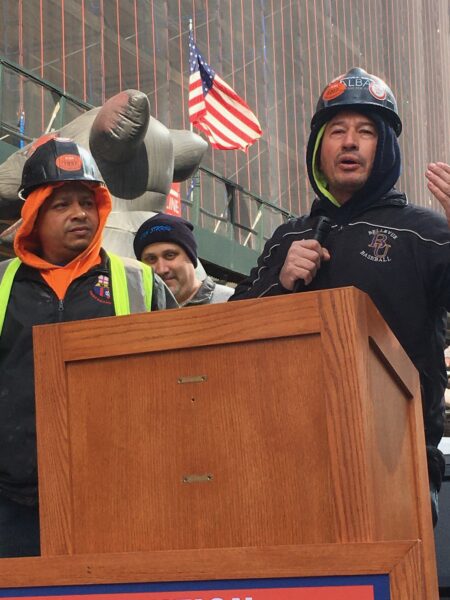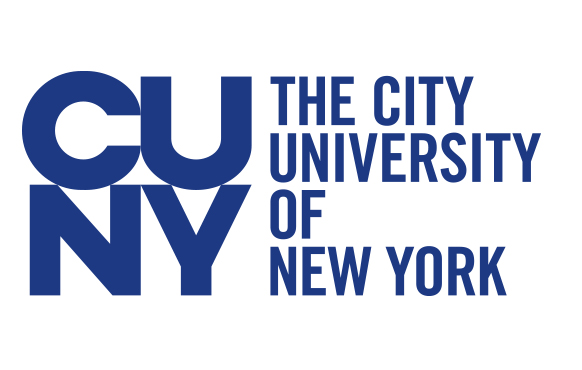New York, NY – On Valentine’s Day, hundreds of immigrant rights organizations throughout the country called for a “day without immigrants” to remind the federal government, especially the Democrats, to make good on their promise and enact immigration reform to legalize the status of the estimated 11 million undocumented immigrants in this country. Despite the name, the day mainly consisted of sporadic rallies where these organizations gathered their base, gave speeches, chanted slogans, and held signs.

All throughout the city, however, this day without immigrants fell short of reality: immigrant flower vendors congregated around subway stops for Valentine’s Day, restaurants served customers thanks to their immigrant staff and the work of app-based delivery drivers, construction projects kept going despite the cold, and thousands of housekeepers and babysitters reported to work just as if it was any normal day. The truth is that none of the existing immigrant rights organizations have the capacity or ability to call for a wide-spread work stoppage. A true day without immigrants would cripple the US economy, and while this is a known fact evident to all immigrant workers, the lack of organizational capacity to pull such a national strike is evident of not only the sorry state of the immigrant rights movement, but mainly of the organized labor movement and its lack of vision and compromise to organize around the demands of this key sector of workers.
These rallies come in parallel with the introduction of a bill by the Florida Republican Congressmember María Elvira Salazar called the Dignity Act. The Dignity Act seeks to provide a form of legalization through work permits for immigrants with which they can work while paying “restitutions” to the federal government of $1,000 annually for a period of 10 years. In that period they will not be granted any federal benefits, and if they seek to legalize their status further they would have to learn English and take civics classes (provided that there is a nationwide implementation of eVerify and border control). The payments to the federal government will be used to create an American Workers Fund to fund “workforce education initiatives, apprenticeship programs, and Career and Technical Education to give opportunities for Americans to enter new careers.” Tucked inside the proposal are provisions to expand the guest worker programs, as well as a rewrite of the way the Adverse Effect Wage Rate is calculated for agricultural workers.
Unlike their Republican counterparts, Democrats, and the nonprofits and NGOs that backed them, tend to think of the immigrant question as one of civil rights. Undocumented immigrants are thought as this population of second-class citizens who because of racist laws and xenophobia are confined to the fringes of society and have no option but to work as cheap labor for the US informal sector. A true labor perspective will see that it is BECAUSE they can serve as cheap expendable labor for the US informal economy that immigrants have to contend with these restrictive immigration laws that don’t allow for a speedy regularization of their status, forcing them to the shadows. Some key sectors of the economy, such as agriculture, could not do without immigrant labor. In these sectors, precisely, we see the most restrictive labor laws: agricultural workers don’t have the right to strike, and in New York State agricultural workers must work over 60 hours to qualify for overtime. In the last decades, manufacturing has grown in places where the labor of immigrants and other workers can be best exploited: the right-to-work states of the Sunbelt. Republicans understand this because a large part of their base of support (farmers, small manufacturers, and small business owners) relies on repression of this immigrant workforce.
A historical perspective shows that the immigrant rights movement arose in the last couple of decades in the advent of the rise of neoliberalism and the new immigration regime encompassed by the Immigration, Reform, and Control Act, and the creation of the Department of Homeland Security after the 9/11 attacks that saw immigration control becoming a realm of the repressive state apparatus. The history of the labor movement shows us that immigrant rights were inexorably determined by the ability of the labor movement to organize the workforce. A lot of the union movement of the beginning of the 20th century thanks its success to the militancy of immigrant workers who bled, fought, and died to forge the union institutions we have today. Immigrants being workers, it is only logical that the advent of better working conditions for working people provided for the betterment of the conditions of immigrants. This changes in the face of the roll-back of the gains of the New Deal, the passage of the Taft-Hartley Act, and the rise of neoliberalism that saw the US economy transform from an industrial powerhouse relying on the labor of millions of workers concentrated in large industrial operations, to a service oriented economy where financial capital dominates the big cities, and a lot of the manufacturing is outsourced to Third World countries with cheaper labor pools and more repressive labor laws. In other words, while back in the day the capitalist class needed immigrants to fill their factories and manufacture its products, now it needs people to stay in their countries where they can serve as cheap labor for their manufacturing, and if you indeed manage to come here, you will be exempted from any democratic rights and confined to small pockets of the economy where your labor can be easily exploitable.
The proposal of Congressmember Salazar is very promising and will surely see the support of certain sectors of the economy, and perhaps some immigrant rights organizations might break with the Democrat affiliates to call for the support of such a measure. On the other hand, union leaders might see this proposal as an attempt to further undermine the power of their institutions and take away jobs from their membership. Non-union immigrant workers will now have a chance to work legally, opening the door for the non-union sector to gain new contracts, and the creation of the American Workers Fund could be used to pay for technical education programs outside of union apprenticeships.
Many unions are tone deaf when dealing with the immigrant question, many even choosing to side with the nativist sentiment to protect “American jobs.” Rather than aggressively pursuing the organization of the immigrant workforce, it has been their misguided mission to only protect the jobs for their contractors. In construction this is very apparent in the face of our union sector losing ground to non-union companies relying on subcontractors that exploit immigrant labor. Old organizing tactics fall short when confronting these new atomized construction firms that avoid prosecution while misclassifying workers, paying them in cash, and many times stealing their wages.
The unions have a lot to fear from the Dignity Act, and this is because they themselves don’t have any proposal that can answer the immigrant question. And immigrant rights organizations will have to fall in line with Salazar’s proposal because seeing no other serious alternatives, this might be the best option to give undocumented immigrants some form of legalization. This is a very smart move that plays into the divisions between the organized workers movement and immigrant rights organizations. It is legalization through the grace of the owners of capital that enacts submission as a prerequisite for a work authorization.
Only a strong workers movement could counter such a proposal, and the way to do that is by proposing legislation with a class perspective, that not simply seeks to legalize the undocumented, but also transforms them into catalysts for the revival of the labor movement. Therefore, the responsibility to organize immigrants must fall on the shoulders of the existing unions, and allied labor organizations. We need to think outside the existing legal parameters and push for policy that opens the door for the organization of this vital workforce while at the same time cementing the power of unions among the immigrant community.
We, the members of Building Trades for Workers Democracy, make the following policy proposal to tie legalization with organization, by making the organization of immigrants into unions a prerequisite for their legalization. We call this policy, The Workers Dream Act. Our proposal has three parts.
1) Union sponsored citizenship
2) Legalization for all immigrant workers that organize their workplace
3) Protection from deportation for immigrants who denounce their boss for labor or safety violations
The legal basis for this proposal is a 2021 petition from the Department of Labor to the Department of Homeland Security to consider the cases of undocumented immigrants, who witnessed labor and safety violations at their workplaces, and shield them from deportation. We believe such a policy could be an indispensable tool in the union arsenal to organize the millions of immigrants that are currently in the shadows and set the basis for a major organizing drive of not just immigrants but all unorganized workers. On the other hand, it would serve to combat nativism and xenophobia within the union ranks when they see that the success of the movement and its future is tied to its ability to constantly organize all workers, and through solidary we can rob the non-union sector of their ability to use the existing immigration framework to take work from organized workers.
We call upon all unions officials, immigrant rights organizations, and elected officials to write down, introduce, and start advocating so that this ideal becomes law. It is important to do this especially in face of Salazar’s proposal that threatens the ability of organized labor to organize this key sector of workers. Immigrants should not be used to undermine organized labor. Their organization into unions will bring about much more gains to our lives than pauper work permits. No amount of dignity comes without a fight for power.
Building Trades for Workers Democracy is a rank-and-file organization of building trade activists. We believe in industrial, class conscious unionism and in organizing construction workers across the industry, whether these are in unions or not.



